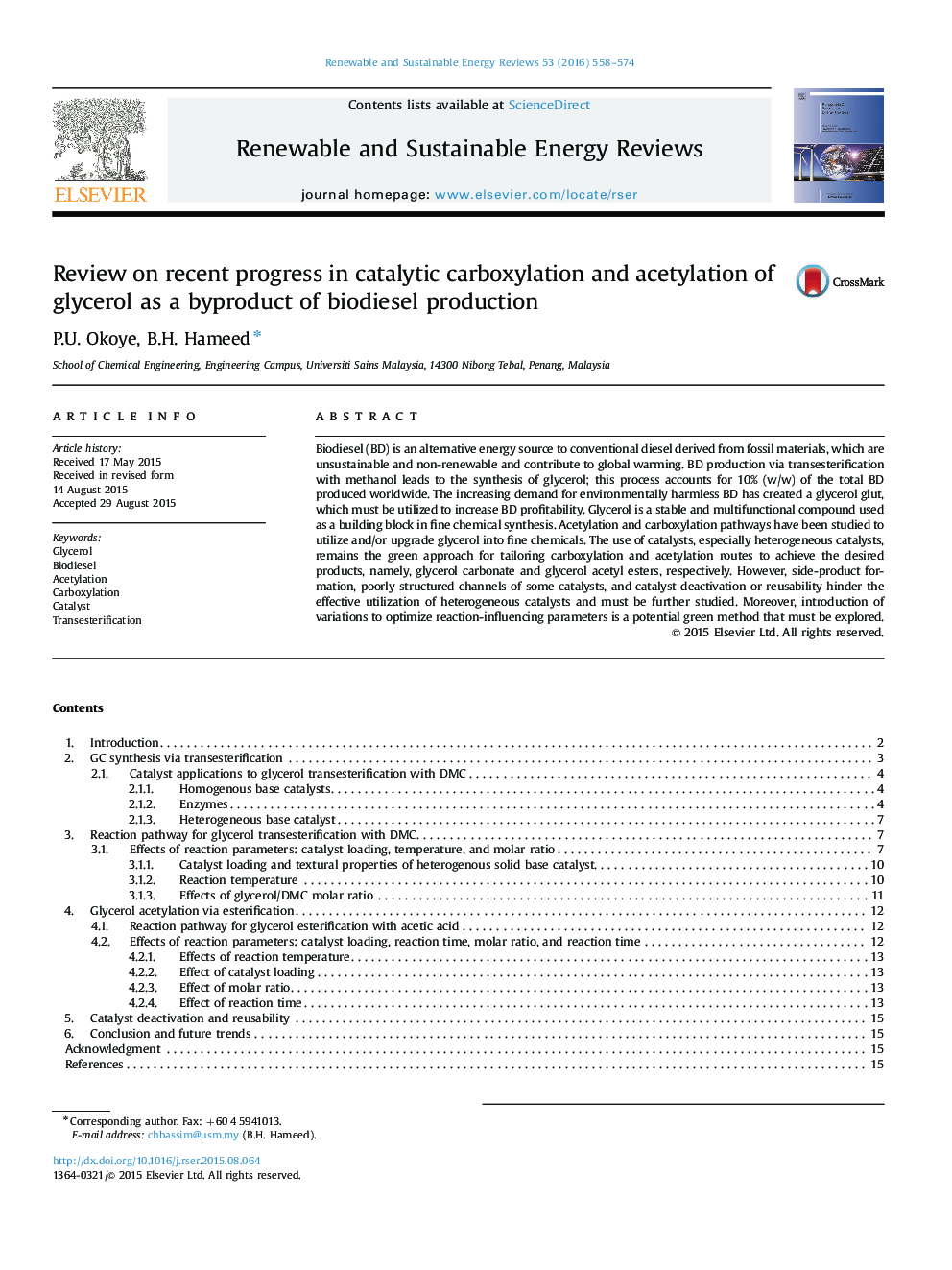| Article ID | Journal | Published Year | Pages | File Type |
|---|---|---|---|---|
| 8115591 | Renewable and Sustainable Energy Reviews | 2016 | 17 Pages |
Abstract
Biodiesel (BD) is an alternative energy source to conventional diesel derived from fossil materials, which are unsustainable and non-renewable and contribute to global warming. BD production via transesterification with methanol leads to the synthesis of glycerol; this process accounts for 10% (w/w) of the total BD produced worldwide. The increasing demand for environmentally harmless BD has created a glycerol glut, which must be utilized to increase BD profitability. Glycerol is a stable and multifunctional compound used as a building block in fine chemical synthesis. Acetylation and carboxylation pathways have been studied to utilize and/or upgrade glycerol into fine chemicals. The use of catalysts, especially heterogeneous catalysts, remains the green approach for tailoring carboxylation and acetylation routes to achieve the desired products, namely, glycerol carbonate and glycerol acetyl esters, respectively. However, side-product formation, poorly structured channels of some catalysts, and catalyst deactivation or reusability hinder the effective utilization of heterogeneous catalysts and must be further studied. Moreover, introduction of variations to optimize reaction-influencing parameters is a potential green method that must be explored.
Related Topics
Physical Sciences and Engineering
Energy
Renewable Energy, Sustainability and the Environment
Authors
P.U. Okoye, B.H. Hameed,
